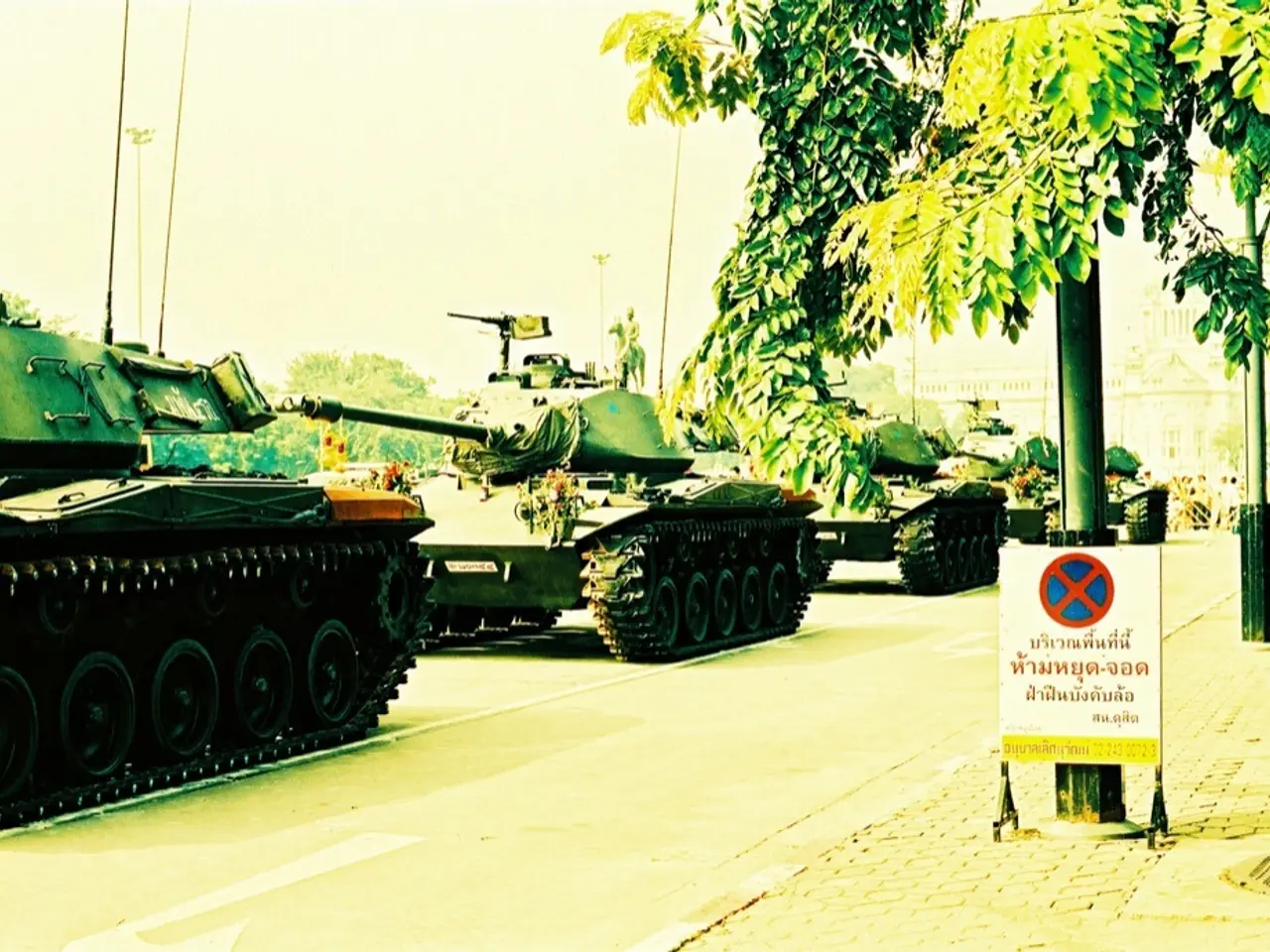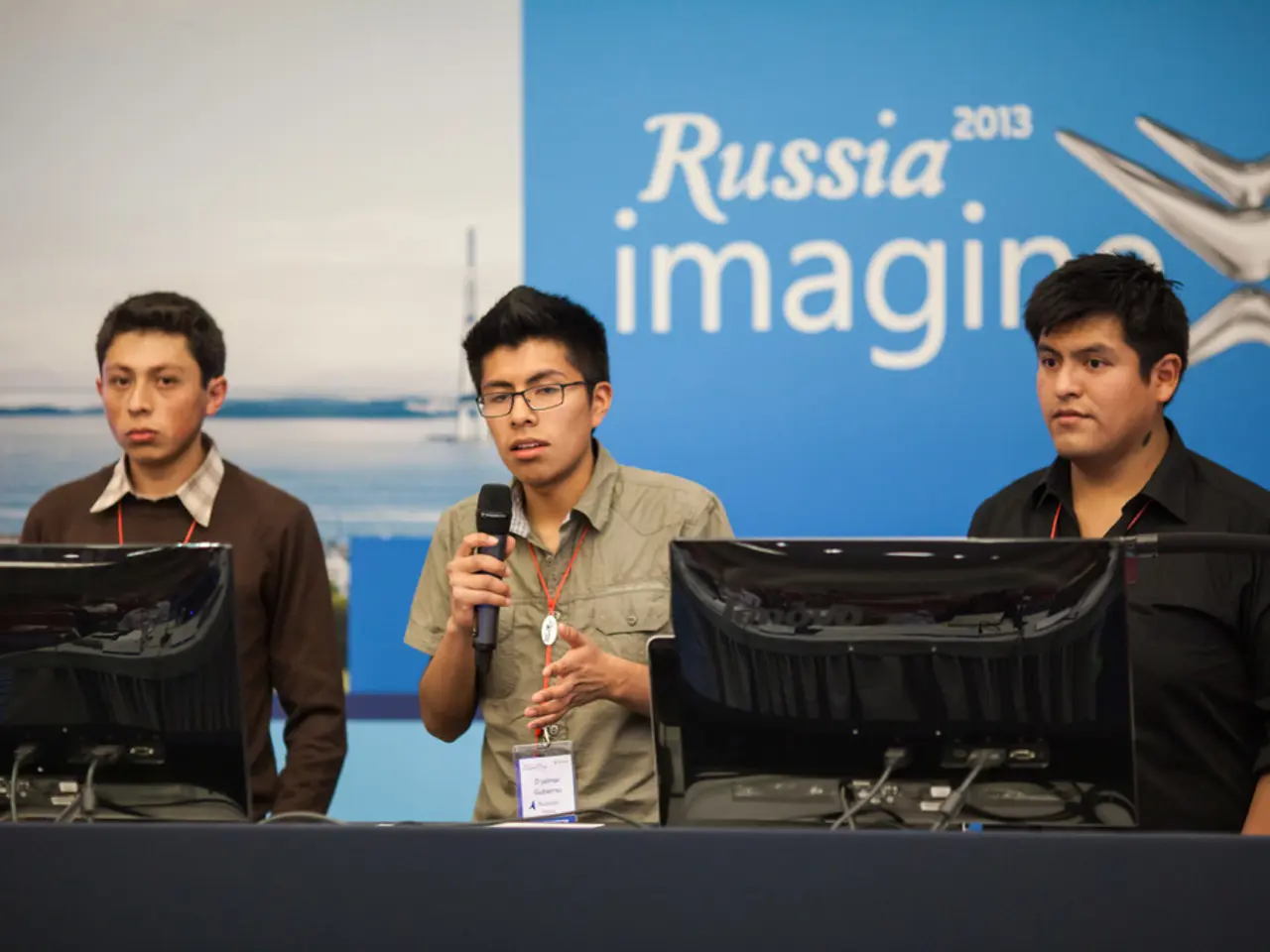Trump and Putin having a rendezvous?
In the global arena, tensions are mounting as US President Donald Trump prepares for a meeting with Russian President Vladimir Putin next week, a conversation that could shape the future of international relations. Meanwhile, in Germany, political debates and adjustments have been shaping the nation's social benefits landscape, particularly regarding refugees and asylum seekers.
Markus Söder, the Minister-President of Bavaria, and Alexander Dobrindt, the German Federal Interior Minister, have been advocating for stricter regulations on citizen's allowances and social benefits. Their aim is to control expenditures and regulate integration more tightly, ensuring that social benefits align with integration and labor market participation incentives.
Söder, in particular, has expressed strong reservations about broad and generous allowances for refugees, especially those from Ukraine. He emphasizes the need to ensure that social benefits are not overly generous, but rather encourage self-sufficiency and active participation in society. Dobrindt, too, has pushed for reforms that would tighten eligibility and reduce what he considers overgenerous social payments, especially for asylum seekers and non-EU immigrants.
Their stance reflects a conservative approach aiming to balance humanitarian aid with fiscal responsibility and social cohesion. Regarding refugees from Ukraine, Germany has maintained special temporary protection statuses since 2022, allowing Ukrainian refugees access to social benefits but not necessarily full citizen's allowance as permanent residents would receive. This distinction has often been a point of contention in political discussions, with calls to align these benefits more closely with those of other asylum seekers or to limit them to contain costs.
More broadly, asylum-seeker benefits in Germany have continued under the legal framework of the Asylum Seekers' Benefits Act, but there have been proposals to reform these benefits to standardize payments and introduce clearer conditions for eligibility. These reforms aim to prevent abuse while ensuring basic social protection. However, no major overhaul of the citizen’s allowance system has been implemented, but ongoing incremental policy adjustments reflect political and economic pressures.
As the world grapples with various crises, it's worth noting that last year saw a 22 million increase in the number of people starving, with 673 million people, more than 8 percent of the world's population, still facing hunger according to a report by the United Nations. The situation for people in Gaza Strip, caught in the ongoing conflict between Israel and the terrorist group Hamas, is particularly dire, with many starving, lacking water, and medicine.
In response to these challenges, politicians in Germany are demanding that the country pays less for citizen's allowance, with some calling for its abolition for certain groups. However, the costs for citizen's allowance in 2024 increased by 10 percent compared to 2023, reaching a staggering 47 billion euros. The monthly citizen's allowance is 563 euros, plus an additional 440 euros for rent.
Amidst these debates, Söder's proposal to stop citizen's allowance for people from Ukraine in Germany has been met with criticism this week. Dobrindt, too, wants to extend border controls and expulsions to prevent migrants from entering Germany illegally.
In a separate development, forest fires in Spain and Southern France are causing significant damage, with the largest fire near the city of Narbonne being the worst in over 75 years.
As the world watches these events unfold, the conversation between Trump and Putin promises to be a pivotal moment in international relations. The meeting, scheduled for next week, could potentially bring about significant changes in the geopolitical landscape.
Migration and politics continue to be contentious issues, as evidenced by the ongoing debates in Germany regarding the regulation of social benefits for refugees and asylum seekers. Meanwhile, the US President's upcoming meeting with Russia's President may shape the future of war-and-conflicts in the global arena.
In the context of Germany, Markus Söder and Alexander Dobrindt advocate for stricter regulations on citizen's allowances, aiming to control expenditures and encourage self-sufficiency among refugees. On the global stage, the conversation between Trump and Putin could potentially affect general-news topics such as war-and-conflicts.






